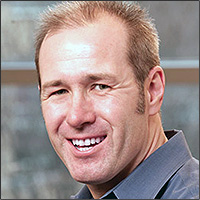Dr. William Irwin
// Author & ProfessorDR. WILLIAM IRWIN is an author, Popular Culture and Philosophy series editor, and a Professor of Philosophy at King’s College in Wilkes-Barre, Pennsylvania. His book “Intentionalist Interpretation: A Philosophical Explanation And Defense” (1999), and “The Death And Resurrection Of The Author?” (2002) are both available from Greenwood Press, “Seinfeld And Philosophy: A Book About Everything And Nothing” (1999), “The Simpsons And Philosophy: The D’oh! Of Homer” (2001) (with Mark T. Conard and Aeon J. Skoble), “The Matrix And Philosophy: Welcome To The Desert Of The Real” (2002), and “More Matrix And Philosophy: Revolutions And Reloaded Decoded” (2005) are all available from Open Court Publishing, “Critical Thinking: A Student’s Introduction (Third Edition)” (2007) (with Gregory Bassham, Henry Nardone, and James M. Wallace) is available from McGraw-Hill, and “Metallica And Philosophy: A Crash Course In Brain Surgery” (2007) is available from Blackwell Publishing.
Website: https://staff.kings.edu/wtirwin/
Photo: Dr. William Irwin / King’s College
Interview:
I don’t like the term “spirituality” because it suggests a non-physical spirit or soul, which I think is a fairytale. We are purely physical beings. Yet we crave something like what has been called “spirituality”, what I would call instead “transcendence”, the desire to rise above our limited, mundane existence by being part of something larger and greater than ourselves. Music allows for such transcendence. Music speaks in a way that languages can’t express or comprehend. Different kinds of music speak to different moods, and for me, Metal provides a catharsis, a cleansing, a purging of negative emotions. Concert experiences can be particularly transcendent. I think especially of the Metal shows of my youth in the 1980’s. People forget what an underground thing Metal was. Metal fans were outcasts, but at a big metal show, fifteen thousand of us would gather in one place. What a feeling of power. Freaks who did not belong were at home in their own little makeshift city for a short time. A larger purpose, a collective oneness, and a celebration of rebellion were implicit in the ritual gathering of the tribes, in all that went on before, during, and after the show.
“Different kinds of music speak to different moods… Metal provides a catharsis, a cleansing, a purging of negative emotions.”
– Dr. William Irwin, author of “Metallica And Philosophy: A Crash Course In Brain Surgery”


